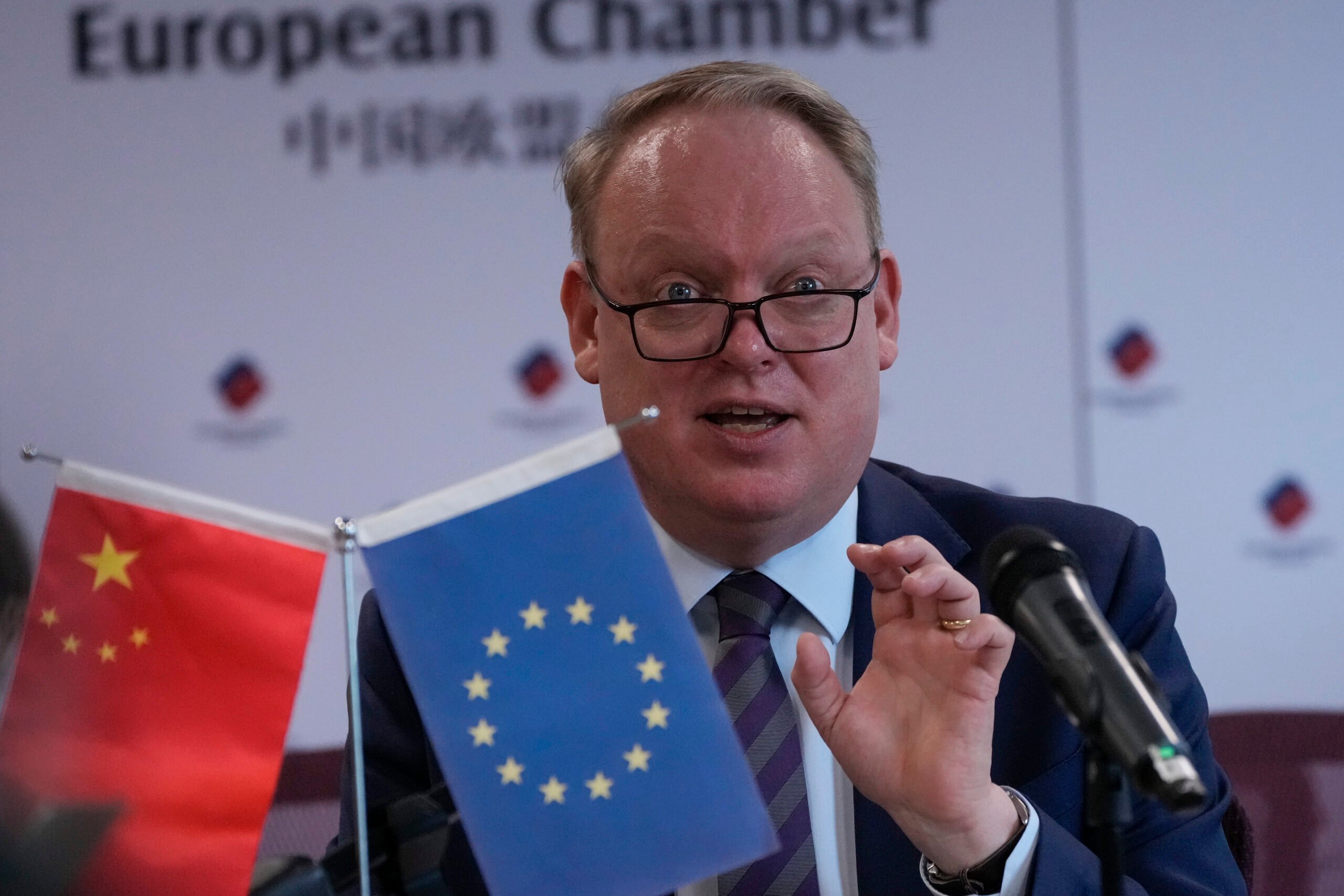European firms in China lose faith in economic reforms

European firms in China express growing scepticism about the government’s ability to boost demand in the struggling economy and fulfil long-awaited reforms, according to a European business lobby group.
The European Union Chamber of Commerce in China highlighted in its recent Position Paper that many of its over 1,700 member companies now view their challenges as permanent rather than temporary.
Jens Eskelund, the chamber’s president, noted investors are scrutinising their China operations more closely as difficulties in doing business begin to outweigh the benefits. “It has become increasingly difficult to profit in the Chinese market,” he remarked during an event releasing the paper.
In 2023, EU foreign direct investment (FDI) flows to China fell by 29% from the previous year, totalling 6.4 billion euros, according to European Commission data. The chamber reported that profit margins in China had dropped for about two-thirds of its members to levels equal to or below the global average.
The chamber’s report emphasised that with other markets offering greater predictability and legal certainty along with similar returns on investment, maintaining previous levels of investment in China is becoming harder to justify.
European firms also face issues such as Chinese competitors receiving unfair subsidies, a politicised business environment, President Xi Jinping’s increased focus on national security, and ongoing market access and regulatory barriers. However, the primary concern remains China’s economic slowdown.
After a poor second quarter, policymakers indicated a shift from their usual strategy of funding infrastructure to targeting fresh stimulus at households. Yet, European firms are growing weary of unfulfilled promises.
“At the start of the millennium, foreign companies viewed Chinese government reform plans as credible,” the report stated. “Now, after more than a decade of largely unmet pledges, doubts over China’s commitment to reform are rising.”

Economists are still waiting for more detailed plans to revive the consumer market beyond a pledge by the Communist Party’s top decision-making body in July and a recently introduced subsidised trade-in scheme for consumer goods. The chamber noted the trade-in programme is unlikely to significantly boost domestic consumption, given its budget amounts to just about 210 yuan per capita.
Eskelund stressed the need for the government to consider measures to restore China’s position as a prime destination for European firms and FDI.
What Other Media Are Saying
- Japan Times reports that the EU firms’ appetite for China investment has sunk to a record low, with only 13% of firms seeing China as a top investment destination.(read more)
- China slowdown fears grip more European companies, EU chamber finds. The European Union Chamber of Commerce in China reports that 55% of European companies operating in China rank a slowdown in the Chinese economy as a top-three challenge, up from 36% the previous year, highlighting concerns over profitability amidst a sluggish economy.(read more)
Frequently Asked Questions
Here are some common questions asked about this news
Why are EU firms concerned about the economic slowdown in China?
The slowdown is making it harder for EU firms to justify investments due to diminishing returns and increased risks.
What has the EU Chamber of Commerce in China suggested to stimulate consumption?
The chamber calls for more targeted household stimulus to boost domestic consumption.
How have EU firms’ profit margins in China changed?
Profit margins for around two-thirds of EU firms in China have dropped to equal to or below the global average.
What are some challenges EU firms face in the Chinese market?
Challenges include unfair subsidies to local competitors, a politicized business environment, and regulatory barriers.
Are EU firms optimistic about China’s commitment to reform?
No, there are growing doubts due to a decade of largely unfulfilled reform pledges.
Related
European markets fall and euro soars amid Trump tariff delays
European stock markets have slumped after Donald Trump’s second reversal on tariffs caused deep uncertainty among investors, while the euro was on track for i
European Central Bank cuts interest rates, keeps door ajar to…
Open this photo in gallery:The European Central Bank headquarters, in Frankfurt, Germany, on June 6, 2024.Wolfgang Rattay/ReutersThe European Central Bank cut i
European security, economy without Türkiye ‘impossible,’ says business leader –…
ISTANBUL Türkiye’s strategic importance for Europe's future is both undeniable and multifaceted, encompassing critical areas suc
Westcon-Comstor promotes Rene Klein to lead unified European business
Westcon-Comstor has announced the appointment of Rene Klein as executive vice president for EMEA, tasked with leading the company’s new unified leadership st











